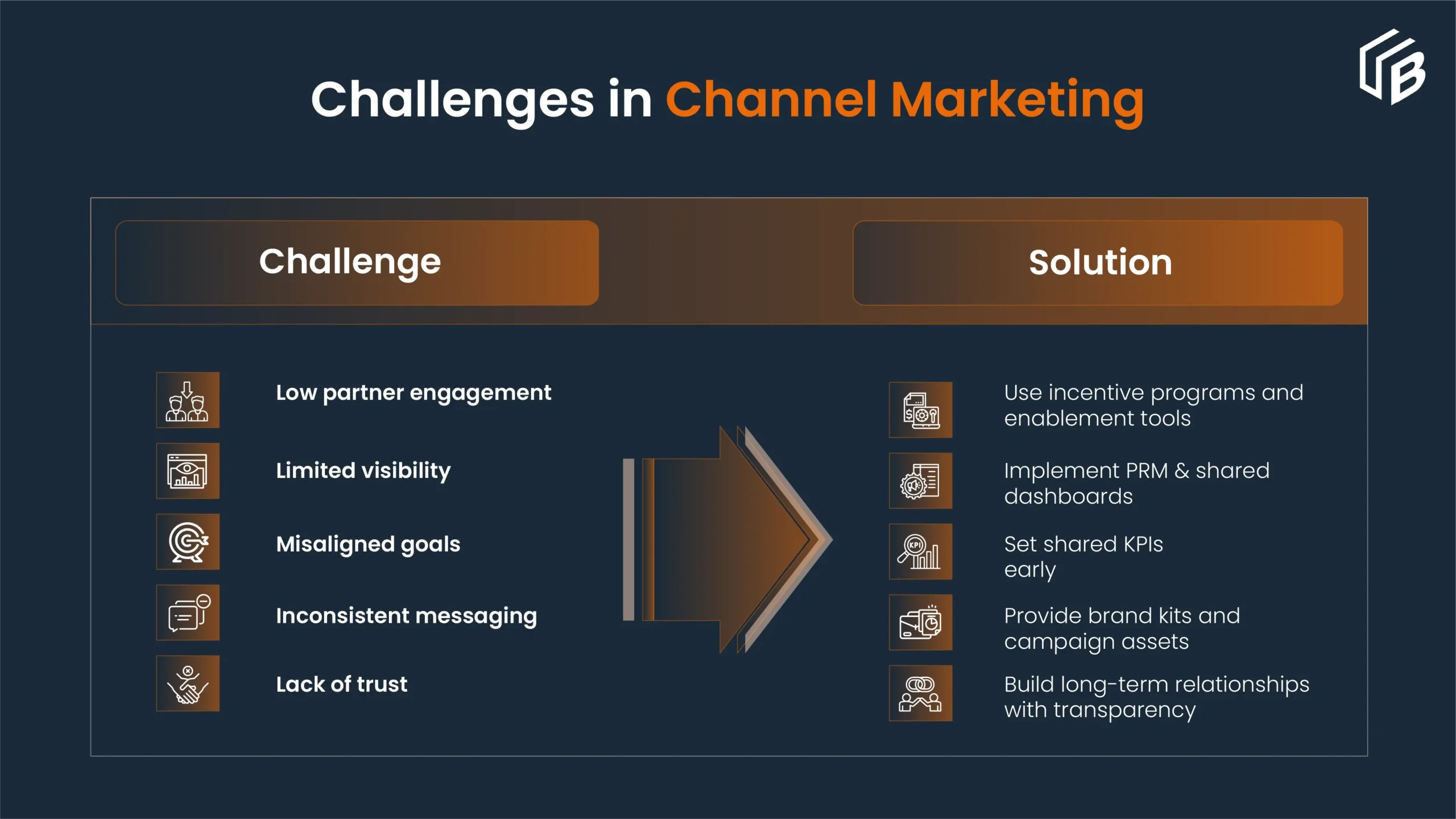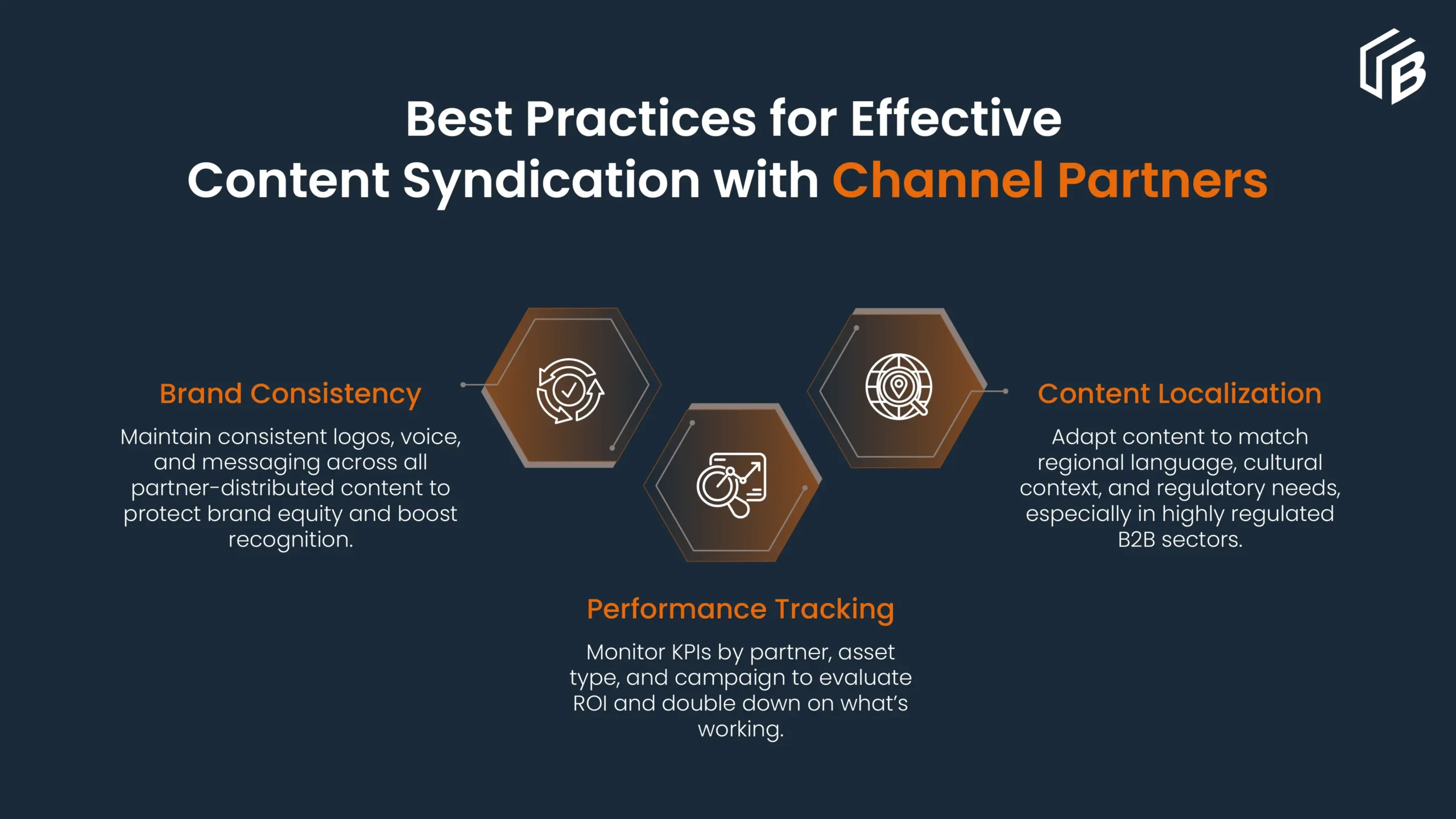
Channel marketing plays a critical role in driving growth for modern B2B organizations. It involves working with external partners to promote and sell products or services. These partners often include distributors, resellers, and managed service providers (MSPs). This approach helps reduce reliance on internal sales and marketing teams while expanding reach and increasing market influence.
Buyer behavior is changing and markets are becoming more complex. As a result, many B2B companies are moving away from direct sales models. They are shifting toward indirect sales strategies that are more scalable and flexible. This shift has led to the rapid rise of partner ecosystems, where collaborative marketing plays a critical role in driving awareness, consideration, and ultimately, improving conversion rates.
What is Channel Marketing and Why Does It Matter?
Channel marketing encompasses the strategies and tactics that businesses employ to promote and sell their products or services through third-party partners. These partners serve as intermediaries between the organization and its end customers, playing a vital role in expanding “the brand’s reach” and driving revenue growth.
In a direct sales model, companies rely on their internal teams to handle customer acquisition and retention. In contrast, indirect sales models involve external partners who manage or influence sales. This approach is especially important in industries where buyers expect local expertise or value-added services.
Key Benefits of Channel Marketing in a B2B Context
- Scalability: B2B Channel marketing allows businesses to expand into new markets quickly by leveraging trusted partner networks. This eliminates the need to hire and train large internal sales teams, making it easier to scale operations globally or regionally.
- Cost-Efficiency: Working with channel partners significantly lowers customer acquisition costs. Partners often absorb a portion of the sales and marketing expenses, allowing vendors to achieve better ROI on go-to-market efforts.
- Local Expertise: Channel partners often have deep knowledge of their local markets, including customer preferences, cultural nuances, regulatory requirements, and competitive dynamics. This insight helps tailor offerings and messaging for higher relevance and impact.
- Extended Reach: By collaborating with multiple partners across regions, industries, or customer segments, businesses can amplify their brand presence. This includes visibility across various marketing communication channels, sales events, digital platforms, and partner-owned networks.
- Faster Market Entry: Established partners can provide immediate access to their customer base, speeding up time-to-market for new products or services.
- Increased Customer Trust: Buyers are more likely to engage with vendors recommended by trusted local partners, which helps build credibility and accelerate the sales cycle.
Types of Channel Partners in B2B Marketing
In a channel marketing ecosystem, each partner type brings distinct value and capabilities. Understanding these roles is key to building an effective channel partner strategy. Common types include:
- VARs (Value-Added Resellers):
VARs purchase your product, enhance it with additional features or services—such as installation, customization, or support—and then resell it to end customers. They often cater to specialized industry needs and provide a higher-touch sales experience.
- MSPs (Managed Service Providers):
MSPs deliver ongoing management and support for IT systems and services, often on a subscription basis. They typically bundle hardware or software with maintenance, monitoring, and helpdesk support, making them ideal for long-term customer relationships.
- Distributors:
Distributors act as intermediaries between manufacturers and resellers. They manage inventory, logistics, and product availability across large geographic areas. Distributors often support marketing, financing, and training efforts for smaller partners.
- System Integrators:
These partners specialize in integrating multiple technologies into one seamless solution. System integrators are crucial in complex B2B environments where clients need a combination of software, hardware, and services tailored to their operations.
- Resellers:
Resellers purchase products from vendors or distributors and sell them directly to end-users, typically without adding significant services. They focus on quick transactions and may operate in high-volume, low-margin business models.
Understanding the types of channel partners helps align your channel partner marketing strategy with each role’s strengths, ensuring you provide the right resources, support, and incentives tailored to their needs.
Top Challenges in Channel Marketing:

How to Execute Channel Partner Marketing Programs
1. Executing Co-Marketing Campaigns with Partners
Co-marketing campaigns are collaborative efforts between vendors and their partners which are designed to reach and engage shared target audiences. These campaigns combine the resources, expertise, and customer reach of both parties, resulting in higher impact and improved return on marketing investment.
2. Best practices for effective co-marketing include:
- Creating joint content such as eBooks, case studies, whitepapers, or solution briefs tailored to shared buyer personas.
- Running co-branded webinars or events to showcase joint value propositions and drive engagement.
- Executing joint email campaigns and implementing clear lead-sharing agreements to ensure follow-up and conversion.
- Aligning KPIs and campaign goals from the outset to maintain accountability and measure success.
- Sharing marketing resources including design assets, messaging guides, and budget contributions to ensure consistency and quality.
Trust and transparency form the foundation of successful co-marketing. Without clear expectations, shared metrics, and mutual commitment, these initiatives often fail to generate meaningful results.
The Role of Cross Channel Marketing
Today’s buyer journey spans multiple touchpoints. That’s why cross channel marketing is critical in executing effective channel marketing campaigns. Your partners must be enabled to engage customers seamlessly across digital, in-person, and hybrid environments.
Key elements of successful cross channel marketing campaigns:
- Unified messaging across email, social media, events, and content syndication.
- Technology integration that allows real-time performance tracking and lead attribution.
- Partner enablement that equips sellers with playbooks and digital assets optimized for various B2B marketing channels.
The Power of Content Syndication in Channel Marketing
Content syndication is a strategic approach in B2B channel marketing, where a business distributes its content, such as blogs, whitepapers, or product guides, through its partners’ networks and platforms. This enables companies to expand their reach, tap into new audiences, and generate high-quality leads without creating entirely new content assets.
Why content syndication is critical in B2B channel marketing:
- Extends content reach to new geographies, industries, and buyer personas.
- Drives qualified leads through trusted third-party platforms that already engage your target audience.
- Ensures consistent messaging across various markets, reinforcing brand positioning and product benefits.
UnboundB2B’s content syndication service allows B2B marketers to distribute targeted content through a global network of industry-specific channels. With a focus on channel marketing KPIs lead qualification, segmentation, and intent-based targeting, UnboundB2B helps businesses generate high-intent leads while maintaining control over brand messaging and campaign performance.

Measuring Channel Marketing Success
To assess the effectiveness of your channel marketing programs, it is essential to define and monitor key performance indicators (KPIs). These metrics help you evaluate partner contributions, identify areas for improvement, and optimize future campaigns.
Critical KPIs include:
- Partner engagement – the level of participation in campaigns, training, and resource usage.
- Sourced revenue – total revenue generated directly from partner-led activities.
- Lead conversion rates – the percentage of partner-generated leads that convert into qualified opportunities or closed deals.
- Pipeline velocity – how quickly opportunities progress through the sales funnel when sourced or influenced by partners.
To streamline the process of measuring and managing channel marketing success, many organizations use Partner Relationship Management (PRM) platforms and marketing automation tools. These technologies provide visibility into partner performance, improve collaboration, and close the loop between marketing and sales. They also enable real-time data sharing, helping both parties make informed decisions and scale successful initiatives.
Conclusion
Channel marketing is a growth accelerator. As B2B buyers move through the funnel from awareness to consideration to decision, channel partners can be key influencers at every stage.
Building a successful program requires clarity in marketing channel strategy, deep alignment with partners, and a commitment to continuous optimization. Whether you’re just starting or scaling an existing program, now’s the time to evaluate your channel marketing setup and refine your strategy for long-term success.
FAQs
1. What is the Purpose of Channel Marketing?
Channel marketing helps B2B companies promote and sell through external partners, thereby expanding reach and enhancing efficiency in go-to-market strategies.
2. What is a Channel Marketing Strategy in B2B?
It’s a strategy to align marketing efforts with channel partners, including tactics like co-marketing, content syndication, and joint lead generation to drive shared success.
3. How do you Measure the Success of a Channel Marketing Strategy?
Use KPIs like partner engagement rates, pipeline velocity, sourced revenue, and lead conversion to track and optimize program performance.
4. What is the Role of Channel Marketing?
Channel marketing enables businesses to scale by using partner networks for market reach, demand generation, and customer engagement.
Our blog
Latest blog posts
Tool and strategies modern teams need to help their companies grow.

B2B Leaders Redefine Demand Generation: Blending Data, Trust & Human Connection. Disc...

Learn how AI-Enhanced Tele-Verification and Account-Based Experience (ABX) together h...

Learn how to improve lead quality and boost conversion rates in B2B with AI enrichmen...






